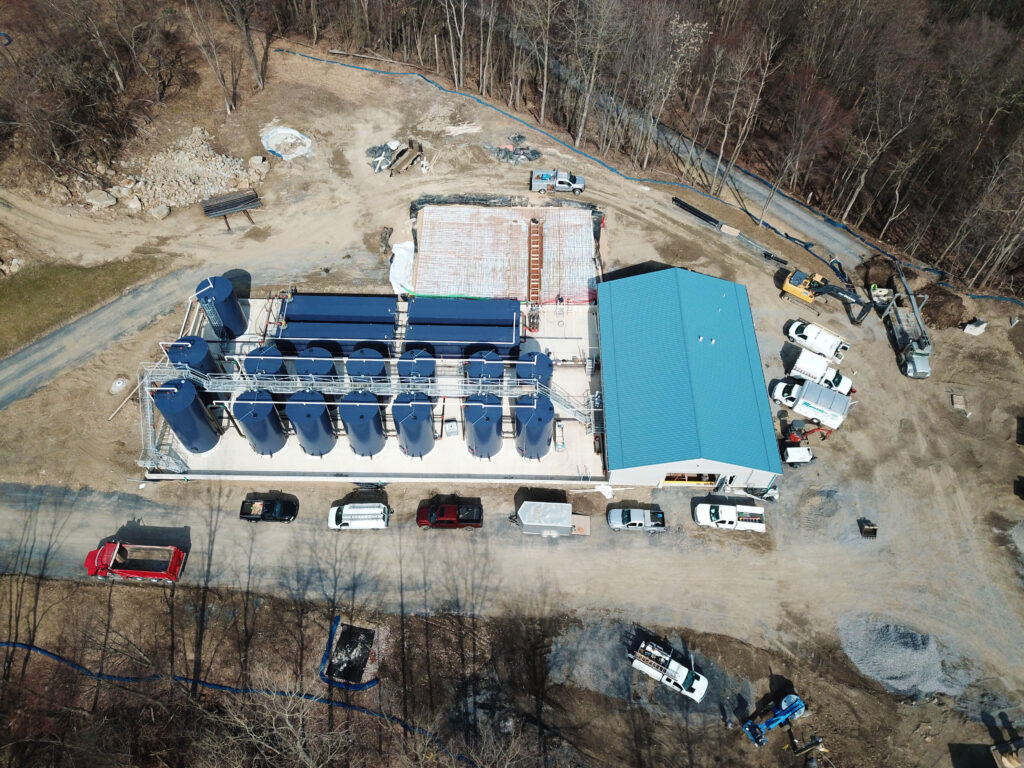
Since her election in 2018, Senator Katie Muth has stood up to protect all Pennsylvanians’ constitutional right to clean water, air, and land by holding corporate polluters accountable. She has even made this commitment a primary pillar of her mission as a Senator. She introduced several bills at the end of January that would further those goals.
HAZARDOUS WASTE
The Solid Waste Management Act governs all waste in the state. It defines types of waste and lays out general rules for management, permitting, enforcement, and remedies. The act also imposes duties on the Department of Environmental Protection (“the DEP”) to create further regulations to carry out the Act. Many of the regulations imposed in Pennsylvania incorporate regulations promulgated by the United States Environmental Protection Agency (“the EPA”) that the State must comply with.
Thirty years ago, a loophole was carved out in the Pennsylvania oil and gas law that exempts operators from obtaining a permit under the Solid Waste Management Act to manage the waste generated at a well. Under current law, the obligation of the owner or operator of an oil and gas well to get a permit and post a bond under Articles III (relating to residual waste) and V (related to permits) of the Solid Waste Management Act is satisfied as long as the well is permitted and a bond is posted under the Oil & Gas Title, and the well is in compliance with applicable regulations.1https://www.legis.state.pa.us/cfdocs/legis/LI/consCheck.cfm?txtType=HTM&ttl=58&div=0&chpt=32&sctn=73&subsctn=1
Additionally, at the federal level, drilling fluids, produced waters, and other wastes associated with the exploration, development, or production of crude oil, natural gas, or geothermal energy (using the earth’s heat to generate power) are excluded from the definition of hazardous waste. This means that the material used or created during oil and gas development is not considered hazardous, even if there is reason to believe it is. Therefore, industry does not have to comply with regulations aimed at handling hazardous waste in a way that is meant to protect public health and the environment from associated harms. This loophole is explicit in federal regulations2https://www.ecfr.gov/current/title-40/chapter-I/subchapter-I/part-261#p-261.4(b)(5) and incorporated into state law.3https://www.pacodeandbulletin.gov/Display/pacode?file=/secure/pacode/data/025/chapter261a/chap261atoc.html&d=reduce#:~:text=%C2%A7%C2%A0261a.1.%C2%A0Incorporation%20by%20reference%2C%20purpose%20and%20scope. However, because Pennsylvania is in charge of its waste program, regulators can impose more protective rules than those enacted by the EPA.
The hazardous waste loophole threatens the water and air of the Commonwealth and residents’ health because the waste is known to have toxic properties. Read more about the hazardous waste loophole here.
Two bills Senator Muth introduced would close the dangerous loophole.
SENATE BILL 26
Senate Bill (“SB”) 26 amends the Oil and Gas Title to require an owner or operator of a well to obtain a permit and post a bond under Articles III and V of the Solid Waste Management Act instead of assuming the obligation is satisfied, an attempt to close the loophole.
However, attention to detail reveals that, even with Senator Muth’s changes, a permit is to be obtained and a bond is to be posted under the residual waste article (Article III) of the Solid Waste Management Act when it should be required under the hazardous waste article (Article IV). An amendment to the bill should be introduced to fix this mistake and ensure waste from well pads is regulated under the correct category.
SENATE BILL 28
SB 28 simply adds “drilling fluids, produced waters, and other wastes associated with the exploration, development or production of crude oil, natural gas, or geothermal energy” to the definition of hazardous waste in the Solid Waste Management Act. This update would override the exclusion of this waste in federal regulations, and oil and gas waste would be regulated in the same manner as other hazardous wastes.
However, to maintain continuity and avoid confusion in the case of bill passage, the DEP should update their hazardous waste regulations to specifically exclude the conflicting section of the federal regulation, as they do with other sections they don’t want to apply. Hopefully, the EPA would follow Pennsylvania’s lead and close the oil and gas hazardous waste loophole at the federal level.
LEACHATE
Toxic leachate, a byproduct of landfills, is an associated problem with the hazardous waste loophole.
When it rains, water makes its way through waste disposed at a landfill, picking up water-soluble materials on its way to the bottom of the pile. This dirty water is known as leachate and is stored in collection chambers on-site. However, when the collection chambers get too full, the leachate is sent to wastewater treatment plants for treatment before being released into the waters of the Commonwealth.
Since oil and gas waste is not considered hazardous, it goes to landfills like other nonhazardous waste. Thus, rainwater passes through and picks up the toxic elements present in the oil and gas waste, making the leachate toxic. Our wastewater treatment plants are not required to treat hazardous waste. Therefore, they do not have the necessary tools or experience to treat this waste, meaning that potentially toxic leachate is released into the waters of the Commonwealth – the water we drink and shower with. Again, jeopardizing our health.
SENATE BILL 29
SB 29 would prevent landfills from accepting oil and gas waste and transferring contaminated leachate to wastewater treatment plants. The bill would make it illegal to accept waste that exceeds standards for toxic substances and radionuclides or exhibit hazardous characteristics. It will also make it illegal for landfills to send contaminated leachate to wastewater treatment plants. To ensure compliance, landfills would have to test all waste entering the site and all leachate leaving it.
Additionally, it makes it illegal for a landfill to accept “exempt special waste”, which oil and gas waste currently qualifies as, unless it is tested and proven to be nonhazardous and nonradioactive.
Thus, if SB 29 passes and the hazardous waste loophole is not closed, Pennsylvanians would likely still be protected from the dangers of oil and gas waste. This bill requires oil and gas producers to prove that their waste is not dangerous to our health before it can mingle with nonhazardous waste, something advocates have been trying to achieve for years. If oil and gas waste is not hazardous and radioactive, this bill will not affect the oil and gas industry. It will only harm them if their waste harms us.
DRINKING WATER SPILL NOTIFICATIONS
As the result of a Pennsylvania Supreme Court Opinion from 2016 and the lack of a legislative fix, the DEP has no requirement to notify public drinking water facilities or private well owners in the event of a spill of chemicals, waste, or other substances associated with the fracking process that could endanger drinking water.
Senator Muth attempts to fix this with SB 92. SB 92 simply requires that public drinking water facilities and private well owners receive notification of a spill, as the Pennsylvania Supreme Court mandated. This bill is necessary to mandate notification of an incident, and without it DEP has no obligation to inform anyone of a spill.
While Senator Muth’s bill is necessary, it also presents a problem. As the statute is written, notification of a spill is only required after the DEP has investigated the incident. As we know from our work in New Freeport, notification after investigation can be very problematic. The DEP has 45 days after an investigation is opened to make a determination of whether a spill affected the water supply or not.
SB 29 should be amended to require notification of a spill when the DEP opens an investigation, not when it is completed.
These four bills are significant steps to protect Pennsylvanians from the potential dangers of the oil and gas industry and its waste. CCJ applauds Senator Muth for standing up for the people instead of corporate interests.
- 1https://www.legis.state.pa.us/cfdocs/legis/LI/consCheck.cfm?txtType=HTM&ttl=58&div=0&chpt=32&sctn=73&subsctn=1
- 2https://www.ecfr.gov/current/title-40/chapter-I/subchapter-I/part-261#p-261.4(b)(5)
- 3https://www.pacodeandbulletin.gov/Display/pacode?file=/secure/pacode/data/025/chapter261a/chap261atoc.html&d=reduce#:~:text=%C2%A7%C2%A0261a.1.%C2%A0Incorporation%20by%20reference%2C%20purpose%20and%20scope.

